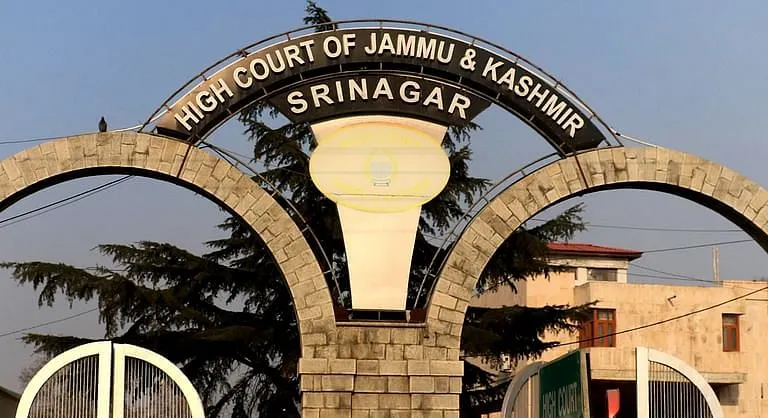Srinagar: The High Court of J&K and Ladakh cautioned subordinate courts against “collusive suits” observing that same were filed for accomplishing “sinister purposes” like avoiding registration of sale deeds and paying stamp duty.
“I deem it appropriate to sound a note of caution to the courts subordinate to this court exercising civil jurisdiction that there is a growing tendency in the litigants to file collusive suits and obtain decrees for accomplishing sinister purposes like avoiding registration of sale deeds, paying stamp duty and many a time getting their rights determined in contravention of law,” a bench of Justice Sanjeev Kumar said dismissing a plea against the orders passed by Additional Commissioner (Commissioner Agrarian Reforms), Anantnag.
The court said that many a time decrees were passed by the civil courts, which, on the face of it, were in contravention of law, merely, on the ground that the party opposing the suit consents to pass such a decree.
“It is thus imperative to keep in mind the legal position while considering such requests for passing consent decrees,” it said.
While the bench observed that the civil courts must ensure that the consent decree was not prayed for to achieve sinister purposes or that it does not contravene any law, it said: “A collusive decree cannot be used as a cloak for the sale deed. There could be numerous occasions where parties in collusion with each other may approach the civil courts for passing the decrees in contravention of law and for achieving the unlawful objectives.”
The court said that it would be appropriate if the Registrar General ensures the circulation of the judgment amongst the subordinate judges.
The court pointed out that order or decree obtained as a result of collusion or fraud is a nullity in the eye of the law and, therefore, does not even require a formal declaration.
“If the forum hearing appeal or revision comes to a conclusion that the order impugned before it is passed by the forum below in a proceeding filed in collusion, such authority cannot shut its eyes and refuse to entertain the same on the ground that the appellant before him was also a party to such collusion and fraud,” the court said. “Such orders, as and when brought to the notice of the appellate or revisional authority, are required to be avoided without any delay.”
Apart from it, the bench said that the High Court while exercising its extraordinary writ jurisdiction vested in it under Article 226 of the constitution, has vast powers to declare such orders, obtained by collusion or fraud, as null and void.






